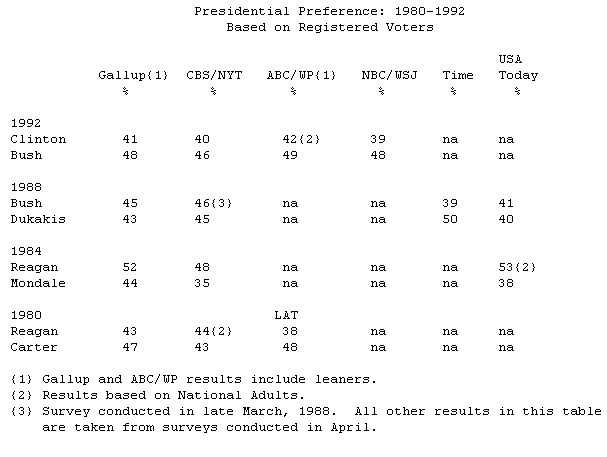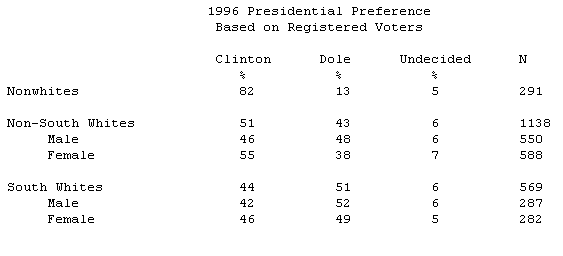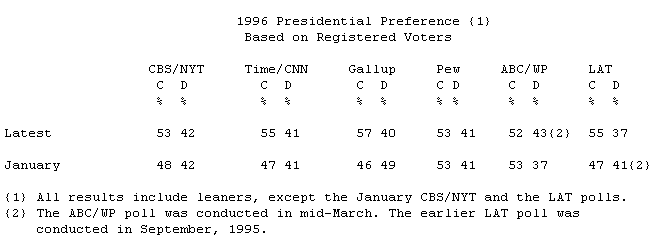Bill Clinton’s lead in the polls is impressive compared to other early front runners in recent presidential elections. His margin over Bob Dole is large, consistent and trending upward. Only Ronald Reagan in 1984 enjoyed all of these advantages.
Four out of the six nationwide surveys conducted in early to mid-April show that Clinton’s lead over Dole is greater than it was a few months ago. Clinton s support varies within a narrow 57% to 53% range, while Dole’s support levels come in at a comparably narrow 43% to 37% range. Consistent poll findings usually are indicative of consensus. Strongly held opinions are less affected by the small methodological differences between polling organizations.
In April of 1992 Bush had a consistent lead in the polls, but it was only 7-8% points. Four years earlier, Dukakis led Bush in some polls, while other surveys in April 1988 had it even. In 1980 Carter’s lead over Reagan in April was far smaller than it had been in January. In 1984, Reagan’s margin over Mondale in the Gallup, CBS/NYT and USA Today polls had grown to a comfortable size by late April.

Bill Clinton’s Asymmetrical Lead
Clinton has a lopsided lead among two groups. He holds a big margin over Bob Dole among nonwhites and among white women living outside of the South. Dole has a lead, or the race is quite close, among all other gender/regional groups.

With only 83% of Republicans now supporting Bob Dole, it is reasonable to expect party members to get behind their standard bearer over the course of the campaign. Many will be drawn from the ranks of white women in the South and white men outside of the South. Republicans outnumber Democrats among both groups.
Whose Values?
The importance of “values” is one of the litanies of this campaign. But it is very hard to pin down just what voters mean by “values” and who is helped and who is hurt by this issue. A case in point is found in differing poll results. When the Pew Research Center asked its sample which candidate is better described by the phrase “shares my values,” a 47% to 37% plurality picked Clinton over Dole. However, when the CBS/NYT poll asked whether each candidate “shares the moral values most Americans try to live by,” a larger percentage thought the phrase applied to Dole (70%) than Clinton (59%).
Lowered Expectations
A 56% majority of voters think that Clinton’s decisions have been influenced by special interest groups, and nearly as many think that about Dole (49%), according to a recent CBS/NYT poll. So it is not surprising that an LAT poll finds that few voters think that fundamental change in the way government is run will occur if Dole (44%) or Clinton is elected (43%).





